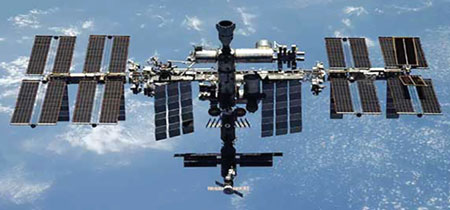An uncrewed Russian supply ship docked at the International Space Station has leaked coolant, the Russian space corporation and NASA reported Saturday, saying the incident doesn’t pose any danger to the station’s crew.
Roscosmos said the hatch between the station and the Progress MS-21 had been locked so the incident didn’t affect the orbiting outpost. “The temperature and pressure on board the station are within norms and there is no danger to the health and safety of the crew,” it said in a statement.
The initial statement from Roscosmos left it unclear whether the entire cargo ship or just some of its systems lost pressure, but Sergei Krikalev, head of Roscosmos’ crewed programs, later clarified that there was depressurization of the craft’s coolant loop.
NASA said its specialists are assisting their Russian counterparts in the troubleshooting of the coolant leak.
“Officials are monitoring all International Space Station systems and are not tracking any other issues,” NASA said. “The crew, which was informed of the cooling loop leak, is in no danger and continuing with normal space station operations.”
The depressurization of the cargo craft’s coolant loop follows a similar incident in December with the Soyuz crew capsule, which Russian space officials said had been caused by a tiny meteoroid that left a small hole in the exterior radiator and sent coolant spewing into space.
Roscosmos has launched a probe into a possible cause of the cooling loop leak, and Krikalev said that experts will closely look at materials and technologies used in spacecraft manufacturing as part of the probe.
“We need to conduct a thorough analysis to make sure that it wouldn’t affect similar components that will be used in the future,” Krikalev said. “This is the most important task.”
Roscosmos noted that before the leak the cargo ship had already been loaded with waste prior to its scheduled disposal.—AP










